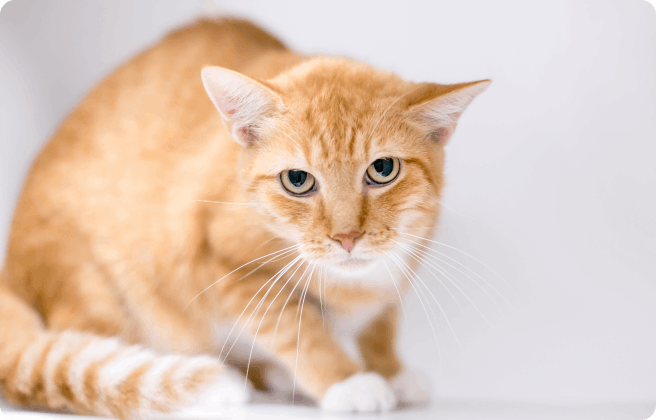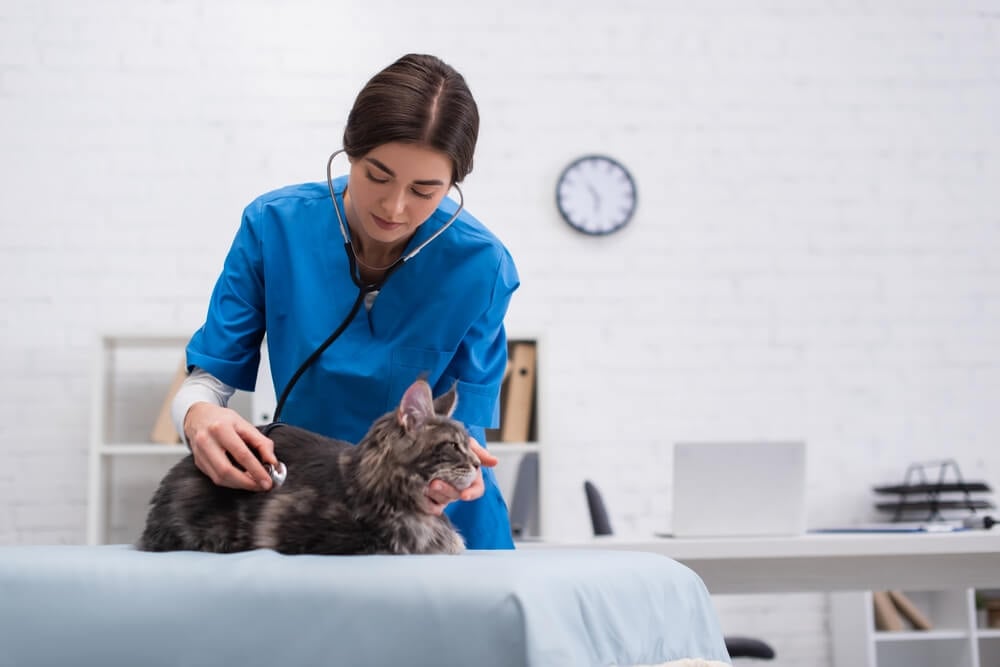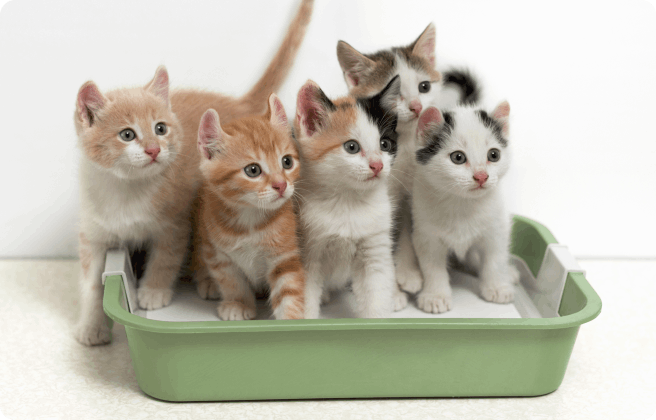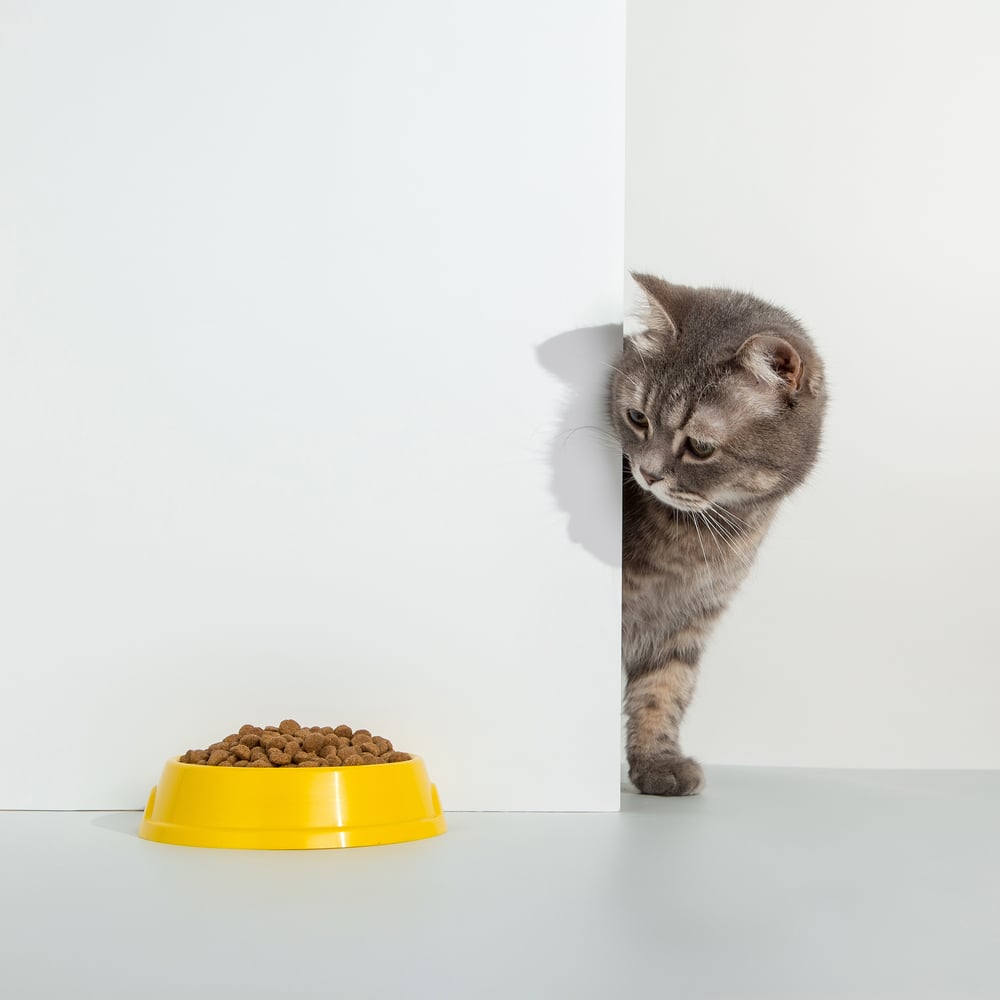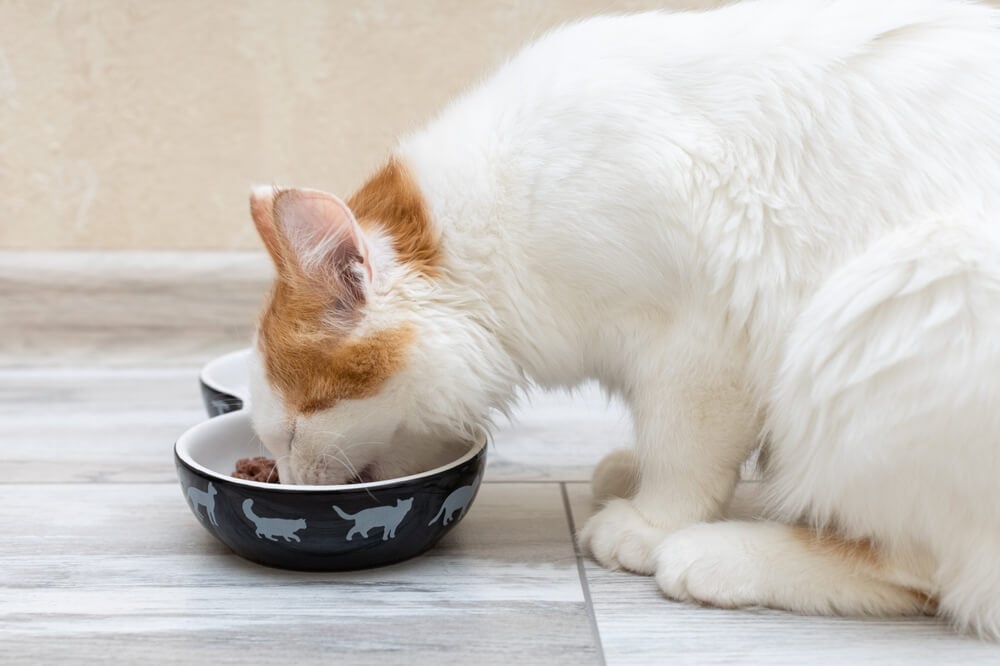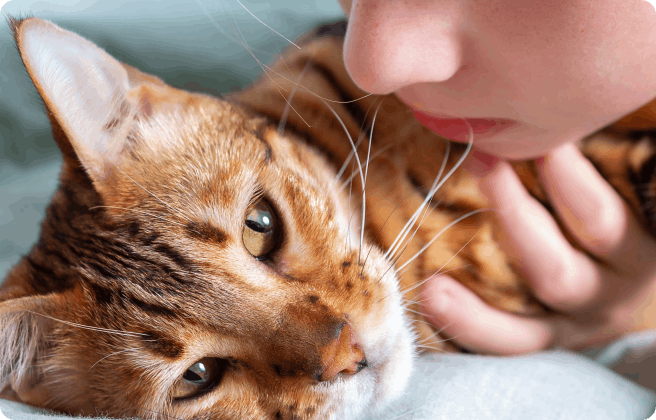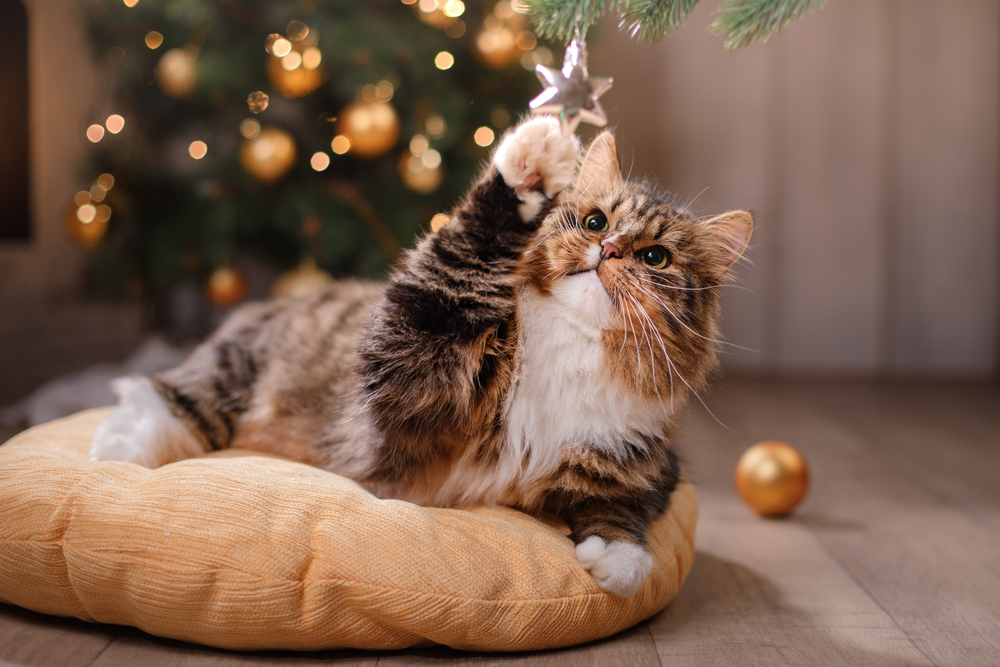
While we may see Christmas as a time of large gatherings and celebration, have you ever considered what Christmas looks like through the eyes of a cat?
The sudden introduction of a giant green object with sparkly, shiny items plopped in their favorite nap zone is enough to overwhelm a routine-obsessed furry friend.
Cats appreciate a familiar environment, and alterations can trigger stress, anxiety, or over-excitement. So, as you welcome unfamiliar people, delicious (and potentially toxic) food, and lots of shiny objects into your home, consider your cat’s perspective and whether it is a comfortable and safe environment for them.
In this article, we will help you explore how to safely display a tree, manage your cat’s anxiety, and enjoy a festive meal so cats and Christmas can coexist harmoniously.
Cats and Christmas trees
If you are a cat parent, you are probably aware of the cat and Christmas tree saga. Filled with shiny, fun-shaped items including baubles, twinkling lights, and tinsel, a Christmas tree is a vertical playground for cats.
Climbing the tree becomes a thrilling adventure, and swatting at dangling baubles provides endless entertainment — but not for frustrated pet parents constantly rescuing a tangled cat and redecorating a battered tree.
There’s a good chance a cat attempting to climb the tree could end up with broken ornaments, but the real danger is that a toppling tree can cause serious injury to your cat. If you have a real tree in your home, note that pine needles can also be a hazard and may cause digestive troubles if consumed. To avoid all this tree drama, here are some steps to take to cat-proof your tree.
How to cat-proof your Christmas tree
- Secure the tree: consider using a stable tree stand, or similar alternative to stop it from toppling.
- Opt for cat-safe decorations: choose unbreakable ornaments and avoid using tinsel (it can be harmful if consumed). Place fragile items higher up to discourage curious paws.
- Create a barrier: set up a barrier around the tree to discourage direct access. This could be strategically placed furniture or a playpen.
- Avoid placing presents under the tree unless you want disappointed faces on Christmas day, consider putting wrapped presents out of your cat’s sight.
Christmas decorations
If you’re a Christmas lover, you will more than likely have festivity spread all around the home in some shape or form. However, your cat may see these items as new toys or hiding places so it’s best to take precautions.
Christmas ornaments
If you have glass or expensive ornaments, consider placing them somewhere completely out of reach for your cat. Glass ornaments can hurt furry paws or if eaten, can be extremely dangerous.
Tinsel
You might not think tinsel is appetizing but cats love playing with these sparkly strings, and it can result in chewing and swallowing little pieces of shiny plastic. When consumed, tinsel can cause digestive issues and blockages, so it might be best to avoid tinsel entirely.
Fairy lights
Lights can be dangerous for cats who wrap themselves in the mess or enjoy chewing on cables. It’s important to unplug any fairy lights on your tree or elsewhere when you aren’t around. Keep them as high out of reach as possible or consider using battery-powered LED lights as a safer alternative.
Candles
Who doesn’t love a cinnamon candle to spread that Christmas smell? If you are lighting candles around the home, only do so when you are there to supervise your wandering cat as they could end up with burnt whiskers or noses.
What plants are poisonous to cats?
Many traditional festive plants can be toxic to cats. Poinsettias, holly, and mistletoe may cause stomach issues for your cat if they consume them. The oils in pine trees can also be irritating to a cat’s mouth and stomach, potentially leading to vomiting. So, if you have a real Christmas tree or festive plants scattered around the home, keep an eye on what your feline friend is nibbling on.
Christmas food
For many of us, festive feasts are the highlight of the season, but it’s important to be mindful of what your cat consumes. Those extra treats we have may add a few pounds, but for cats, they can be dangerous.
Grapes, for example, are toxic to cats, as are currants, sultanas, and raisins used in mince pies, Christmas cakes, and pudding. Even a tiny amount of chocolate is enough to poison your cat, so it’s best to keep all sweet treats away from your four-legged friends.
Besides, your cat will probably be more interested in the savory snacks that fall from the table. However, onion and garlic which feature as ingredients in many human dishes can also be toxic for cats. Cooked bones often found in the turkey, chicken, or goose may cause splinters or become lodged in the intestines or stomachs of your cat.
While plain turkey or chicken breast can be a delicious treat for your cat, it’s best to give them this before seasonings and manage portion control. It’s worth warning guests not to feed any four-legged beggars table scraps — it’s in everyone’s best interest.
If you do wish to treat your cat on Christmas day, why not get in some special festive treats or toys just to be on the safe side?
Stress and anxiety
Christmas can be a stressful time for cats, especially those who are particularly anxious. A sudden change of atmosphere with unfamiliar people coming and going can cause distress for your furry friend.
It’s tempting to dress your cat up as an elf or add a cute accessory, we know. But it might not be in your cat’s best interest. Costumes can restrict your cat’s regular movement, making them less comfortable to stretch or groom. It may also cause extreme stress and discomfort which could result in a reluctance to be held or stroked in the future.
How can I ensure my cat is happy on Christmas Day?
It’s a good idea to provide a safe hiding place or quiet room where your cat can be left undisturbed. Try to keep their usual routine as normal as possible, feed them at their regular time, and provide some playtime. You may also consider using feline facial pheromone diffusers to provide a calm environment. You want all members of the family to have a harmonious day after all.
Christmas may also be a time when you visit family abroad so it’s important that you have a cat sitter or book them into a trusted cattery in good time before you head off.
It is possible for your cat to enjoy extra strokes and festive treats at Christmas just with a few extra considerations. By creating a safe and engaging environment, you can ensure a joyful and stress-free holiday season for both you and your feline companions.
If you are concerned about your cat eating something poisonous or chewing on cables, give your vet a call to discuss it as soon as possible.
We uphold the highest editorial standards when creating the authoritative content pet parents rely on and trust.
Every piece of clinical content on the Cat Food Advisor is reviewed by our certified Veterinary Advisory Board, which consists of licensed veterinarians and medically certified specialists.
Our reviews are completely independent; we are not paid by any pet food company to promote their products favorably. We do not accept money, gifts, samples or other incentives in exchange for special consideration. For more information see our Disclaimer & Disclosure page.




